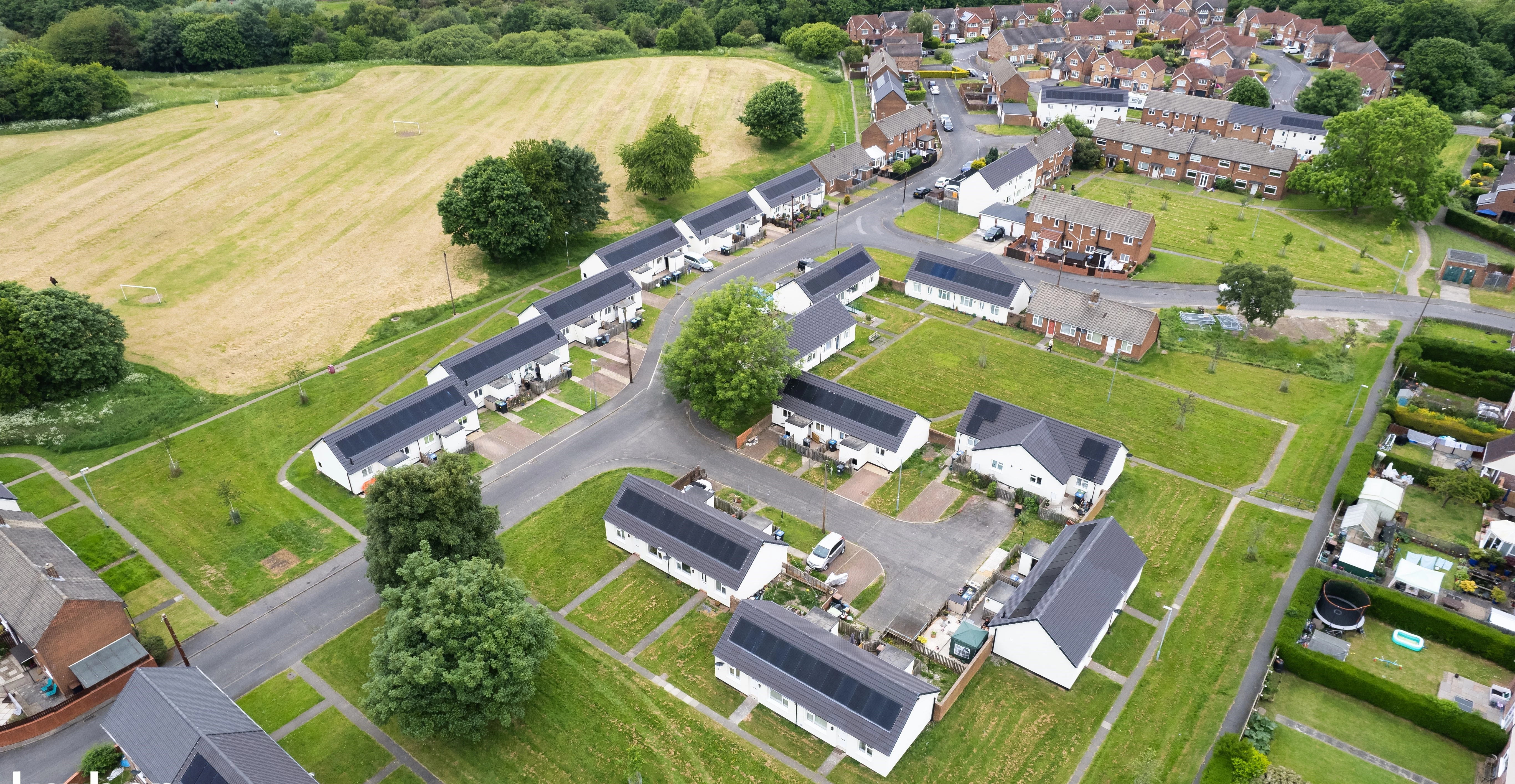
The road to net zero – improving the energy efficiency of the North’s social housing
For the social housing sector, the pressure of the net zero challenge is on. For all homes to achieve an energy performance certificate rating of C by 2030, and to meet net zero carbon by 2050, investment is needed on millions of homes across the country.
For Karbon Homes, a housing association with almost 32,000 homes across the North East and Yorkshire, the journey to net zero is a top focus across the organisation and involves everything from improving the efficiency of its existing homes, to building new homes to the highest efficiency standards and making changes to its everyday operations to reduce the organisation’s overall carbon footprint.
Back in 2021/22, Karbon set aside £20million for nine years of targeted investment to improve the energy efficiency of its existing homes, continuing its drive to reduce customers’ bills and achieve the initial target of all homes achieving an EPC rating of C. Two years on, Anthony Bell, Assistant Director of Asset and Regeneration at Karbon Homes outlines Karbon’s journey so far.
“With the rising cost of living, improving the efficiency of our homes for our customers has never been more important. Paired with the Government’s Clean Growth Strategy targets, our work to tackle the energy performance and carbon footprint of our homes and operations is a top priority for the organisation.
Last year we invested over £6million in energy improvements to our homes This included a £2.1m retrofit programme, part funded by the Social Housing Decarbonisation Fund, to improve the energy efficiency of 91 homes in County Durham and Northumberland.
Works included fitting external wall, cavity, loft and underfloor insulation, new roofs, and PV panels, with the improvements set to not only save our customers up to 40% on their energy bills but to also improve the external look of the properties.
We’re set to carry out more programmes like this one and have recently received further funding from the Social Housing Decarbonisation Fund’s Wave 2, to help with the delivery of a second large scale retrofit programme, investing £3.6m in improving a further 218 of our less efficient homes in Northumberland and County Durham.
The net zero target is where things get more challenging. We’re continually working on our internal stock data to determine what our overall spend might need to be to achieve net zero by 2050, but our current calculation suggests that it will cost us approximately £442m, or £17.4k per home, to achieve net zero across all our homes.
Alongside simultaneous financial pressures within the organisation, such as building new homes to tackle the housing crisis and new building safety requirements, these costs make the task increasingly challenging.
Since 21/22 we haven’t needed to compromise on our decarbonisation priorities, but over the medium to long term it will be difficult, if not impossible in the absence of some form of increased grant or funding support from the government, to maintain our commitment to ensuring all our homes are net zero by 2050.
When it comes to the new homes we build, by using a fabric first approach we can maximising the energy performance of the components and materials that make up the building fabric itself, and through modern methods of construction, reduce build times, and in turn reduce energy use and waste.
However, when it comes to our existing homes, all of which differ in age and design, no one solution fits all, so we need to be sure the solutions we choose are what is best for our organisation, our net zero priorities and, most importantly, our customers.
With new technology and businesses constantly emerging and developing in this field, we’ve decided to run several small-scale experiments to explore different innovations available, testing their functionality, monitoring their performance and collecting customer feedback to determine whether they’re worth rolling out further.
Our pilots include fitting five homes with the Tesla Powerwall, a rechargeable home energy storage unit which provides essential electricity backup to support vulnerable customers, and replacing poor-performing night storage heaters in two blocks of flats with infrared heating panels, offering a low cost, low maintenance option with potential efficiency savings of up to 60%.
Looking to promote your product/service to SME businesses in your region? Find out how Bdaily can help →
Enjoy the read? Get Bdaily delivered.
Sign up to receive our daily bulletin, sent to your inbox, for free.








 Raising the bar to boost North East growth
Raising the bar to boost North East growth
 Navigating the messy middle of business growth
Navigating the messy middle of business growth
 We must make it easier to hire young people
We must make it easier to hire young people
 Why community-based care is key to NHS' future
Why community-based care is key to NHS' future
 Culture, confidence and creativity in the North East
Culture, confidence and creativity in the North East
 Putting in the groundwork to boost skills
Putting in the groundwork to boost skills
 £100,000 milestone drives forward STEM work
£100,000 milestone drives forward STEM work
 Restoring confidence for the economic road ahead
Restoring confidence for the economic road ahead
 Ready to scale? Buy-and-build offers opportunity
Ready to scale? Buy-and-build offers opportunity
 When will our regional economy grow?
When will our regional economy grow?
 Creating a thriving North East construction sector
Creating a thriving North East construction sector
 Why investors are still backing the North East
Why investors are still backing the North East